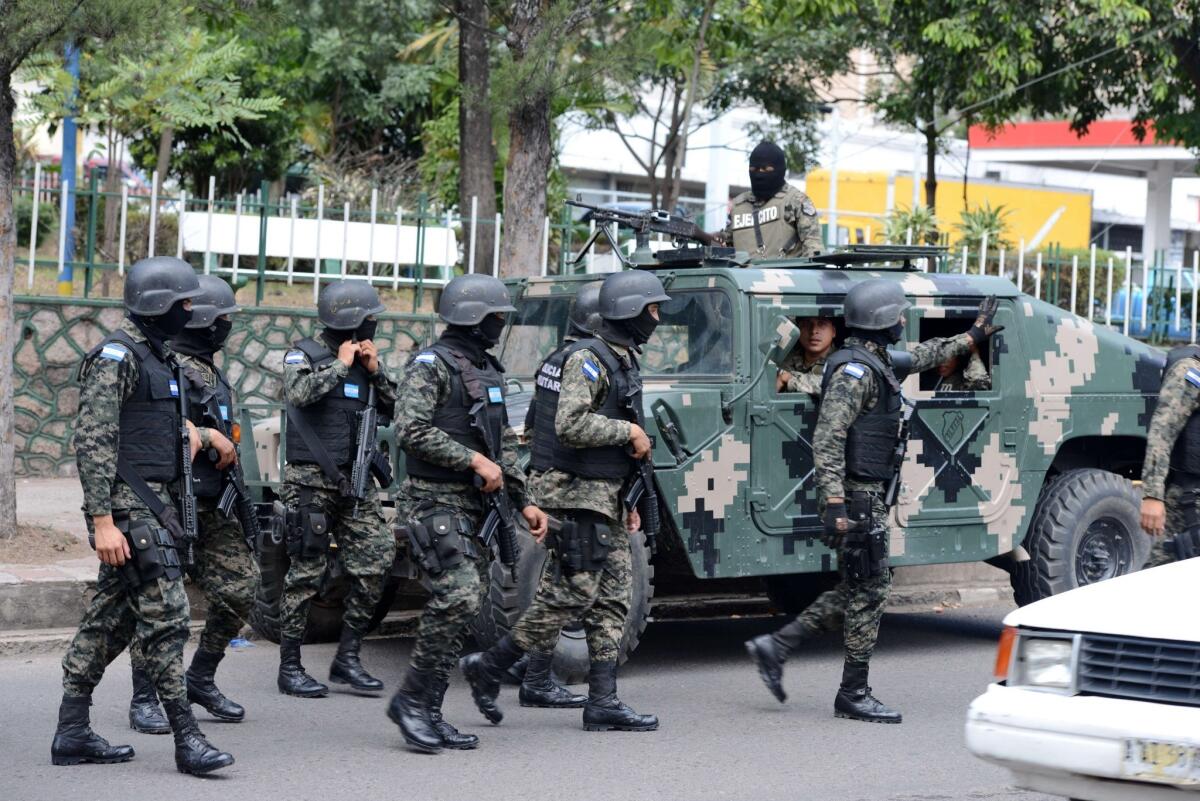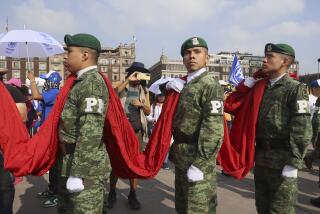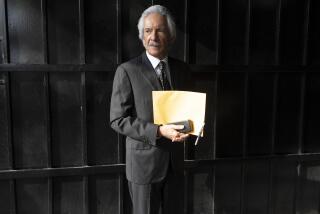Report assails violence against journalists in Honduras

MEXICO CITY -- Since a 2009 coup overthrew the president of Honduras, journalists have been killed, intimidated or silenced with virtual impunity, a new report concludes.
In a country with an extraordinarily high murder rate, at least 36 journalists have been killed in the last four years, the report notes, and rarely has a case been seriously investigated, a suspect arrested or anyone punished.
“In the new climate of fear, few journalists trust the institutions that should shield them from further violence,” PEN International and several partner groups said in an exhaustive, 89-page study released this month.
“Until the Honduran state … prioritize[s] holding violators of human rights to account, impunity will remain the order of the day, and the crimes of the past will continue to foreshadow the crimes of the future.”
Violence against journalists -- and against numerous human rights activists, intellectuals, peasant leaders and others -- has many causes: rampant international drug trafficking, vicious gangs, persistent political fallout from the polarizing coup, corruption and bare-knuckle land grabs.
Many of the attacks on journalists and others are committed by corrupt police and other “state agents,” PEN said. Some of the slain were seen as supporters of ousted President Manuel Zelaya, but others seemed to have backed the coup.
The report covered well-traveled ground on the extent of deadly violence against reporters in Honduras. But it focused attention on the profound flaws in a judicial and law-enforcement system that thwarts investigation and perpetuates the problem. And it made several recommendations, including that a special human rights prosecutor be given jurisdiction over the killings of journalists, something that does not exist now.
It also notes that journalists in Honduras show little solidarity in demanding action.
“There is a lack of a united voice demanding accountability and measures to reduce violence,” the report says.
wilkinson@latimes.com
Twitter: @TracyKWilkinson
More to Read
Sign up for Essential California
The most important California stories and recommendations in your inbox every morning.
You may occasionally receive promotional content from the Los Angeles Times.











